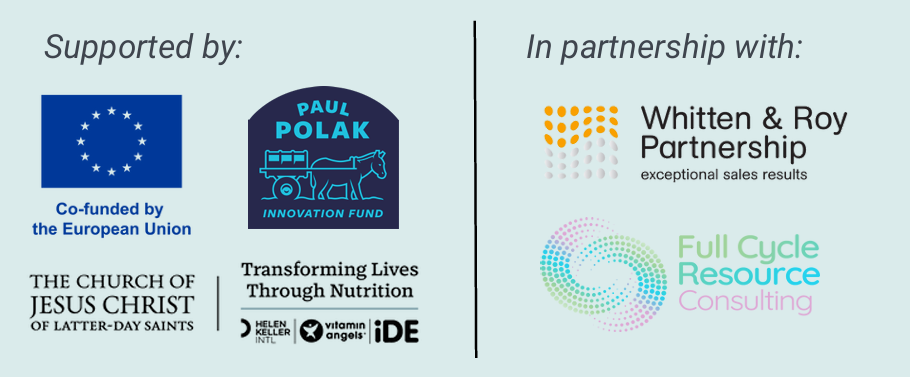Digitizing waste management: How data is transforming rural Cambodia
Published February 25, 2025Approximately 80% of Cambodia’s population lives in rural areas with little to no access to formal solid waste management services. Existing waste disposal options are limited to a few formal landfills and predominantly open dumpsites, which suffer from irregular maintenance and accessibility issues. As a result, waste that does not reach these sites is often burned, buried, or openly discarded. Local authorities face significant capacity and resource constraints, making solid waste management a low priority.
One of the most critical environmental concerns is the pollution of Tonle Sap Lake, a UNESCO-designated Biosphere Reserve. This lake plays a vital role in Cambodia’s ecosystem, supplying 60% of the country's total protein intake and supporting three million families in the region. During the rainy season, the Tonle Sap River flows from Phnom Penh into the lake, expanding its size fivefold. In the dry season, the river reverses course, carrying accumulated waste from surrounding communities into the Mekong River and ultimately into the ocean. This hydrological cycle makes Tonle Sap a significant waste collection point, exacerbating the environmental challenges in Cambodia’s waterways (Image 1).
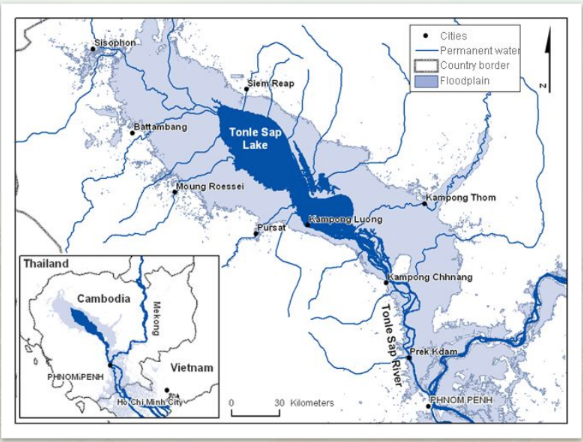
The iDE Cambodia's WaMA project focuses on Boribo District, located east of Tonle Sap Lake in Kampong Chhnang Province, with an estimated 15,000 households with one waste collector identified. The initiative aims to establish a waste collection service for 6,000 households, beginning in April 2024, with full-scale implementation set for September and October 2024 (iDE Cambodia: https://www.ideglobal.org/country/cambodia )
During the initiation phase,the team discovered the service provider does not have record keeping systems, formal pickup schedules, customer list, and financial tracking, making it difficult to monitor performance, profitability, or build a business case. Additionally, the lack of operational data meant that the service provider dispatched trucks on an ad hoc basis, depending on the day’s collection volume. As a result, collections were often incomplete and had to be carried over to the following day, leading to inefficiencies and underutilization of fleet capacity. Without structured route planning, the trucks were not operating at maximum performance, increasing fuel costs and operational delays.
To build a sustainable and scalable business model, iDE’s team conducted a customer mapping through a time and motion study to assess the existing customer base and evaluate key operational factors (Image 2). As part of this process, the team visited every customer to collect information on contract value, which would later be used for payment tracking. This study aimed to analyze financial scalability, pricing structures for waste collection, and route optimization, providing critical insights to enhance service efficiency and long-term sustainability.
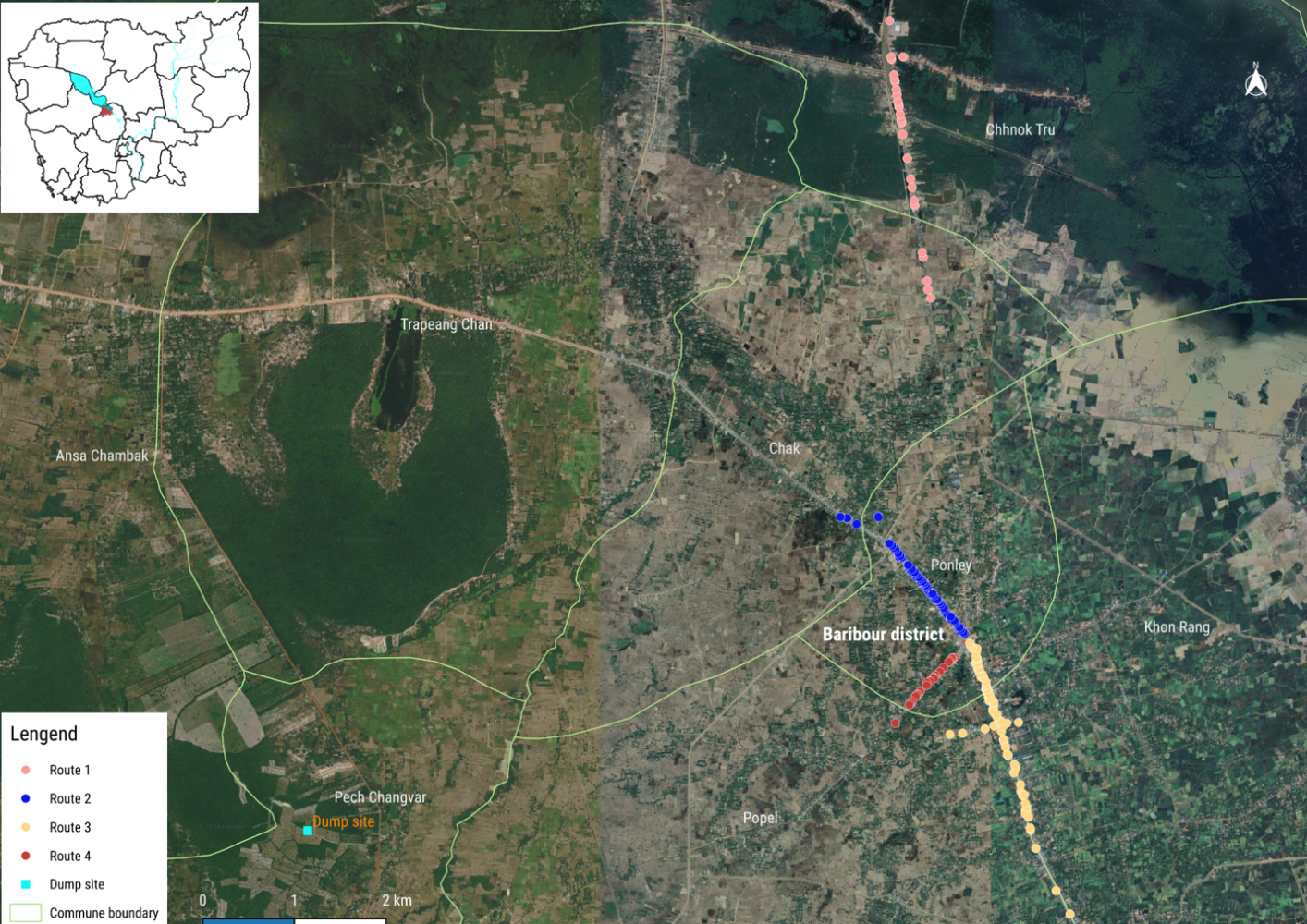
Together between the service provider, iDE, Full Cycle Resource Consulting (FCR), and Whitten & Roy Partnership, the team further evaluated key operational metrics, including time per collection, estimated waste volume, truck capacity, and payment data. Using this information, and through co-designing and discussions with the service provider, the team developed a scalable expansion strategy that is both financially feasible and operationally efficient.
To support expansion efforts, six sales agents were trained and hired to drive customer acquisition and service outreach in September 2024 with 378 customers. By October 2024, the total number of onboarded customers had increased to 553, marking the start of the digitization process (Image 3). This transition introduced GPS tagging for customer collections, replacing the previous manual system. The digital transformation allowed iDE to assess key operational and market factors, including customer concentration, market saturation, sales and expansion planning, routing requirements, and the impact of seasonality on operations. Additionally, it enabled more precise distance and time estimation for route optimization.
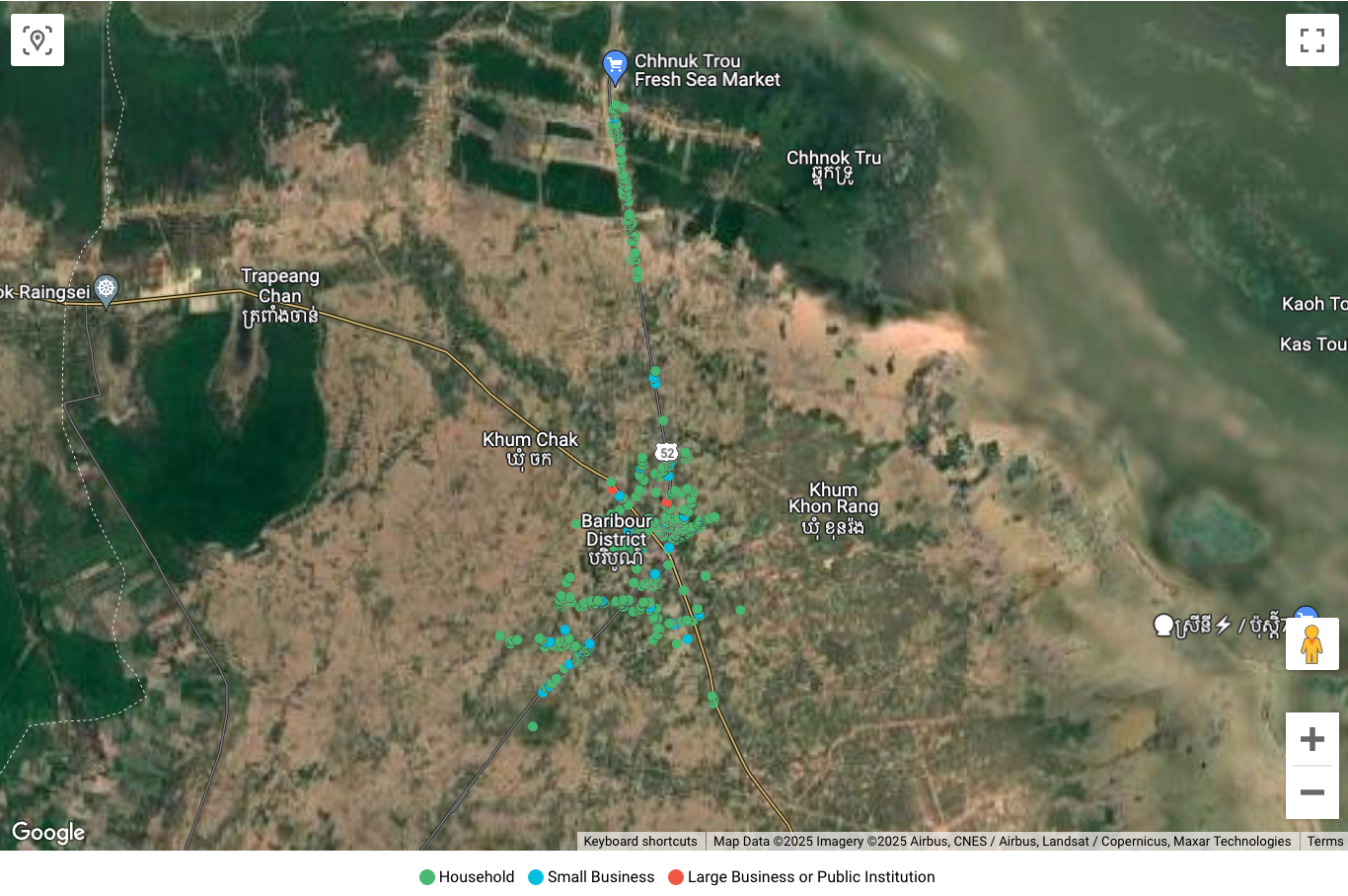
This period served as a ramp-up phase, functioning as a soft opening or trial period to address operational inefficiencies before full-scale expansion. Key activities during this phase included the beginning of formal sales efforts, waste volume calibration, and adjustments to the operational schedule to improve efficiency and ensure smoother service delivery.
By November 2024, the number of onboarded customers had increased to 768, demonstrating significant growth (Image 4). However, scaling isn’t always easy, as ongoing challenges in optimizing service coverage and integrating data remain. These challenges underscored the need for continuous refinement in route planning and digital record-keeping to ensure efficient operations.
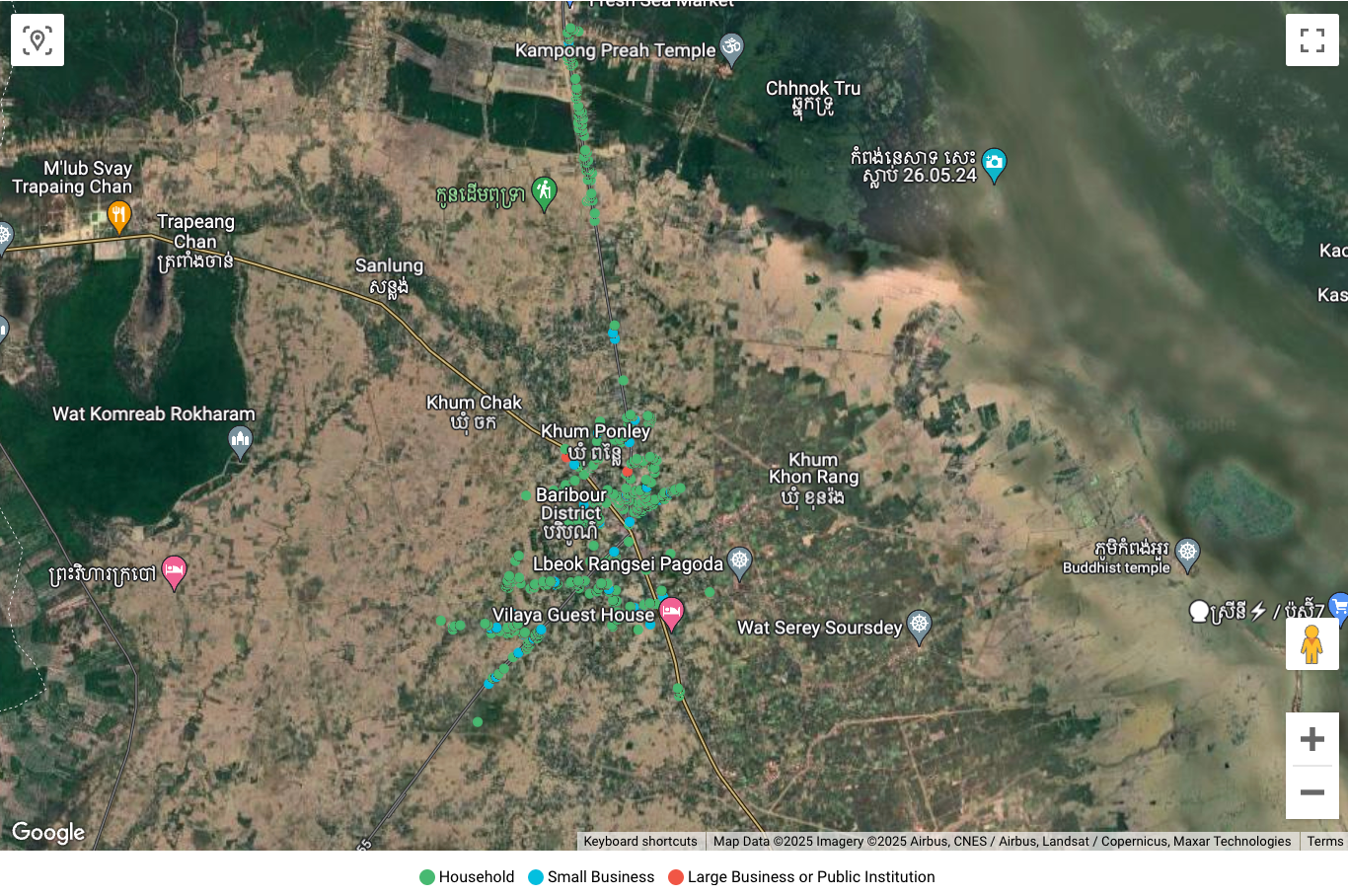
By December 2024, the number of onboarded customers had grown to 1,429, marking a significant milestone in the expansion of waste collection services. The backlog of customer information was fully updated, ensuring more accurate tracking and management. This month also recorded the highest sales volume to date, with 661 new customers onboarded.
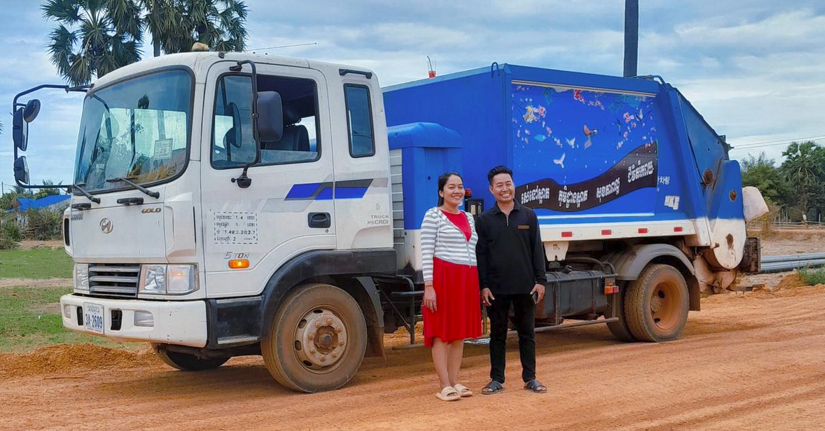
But the real game-changer? A second collection truck hit the road! After months of planning and preparation, iDE and team successfully refurbished and deployed an additional waste collection vehicle, increasing operational capacity by 3 to 4 folds. This means faster pickups, expanded coverage, and improved efficiency for the growing customer base. To further strengthen operations, the team launched a real-time dashboard for tracking key performance indicators (KPIs), coverage, and saturation rates. This digital tool is a huge step forward in optimizing service delivery, ensuring every household receives reliable waste collection.
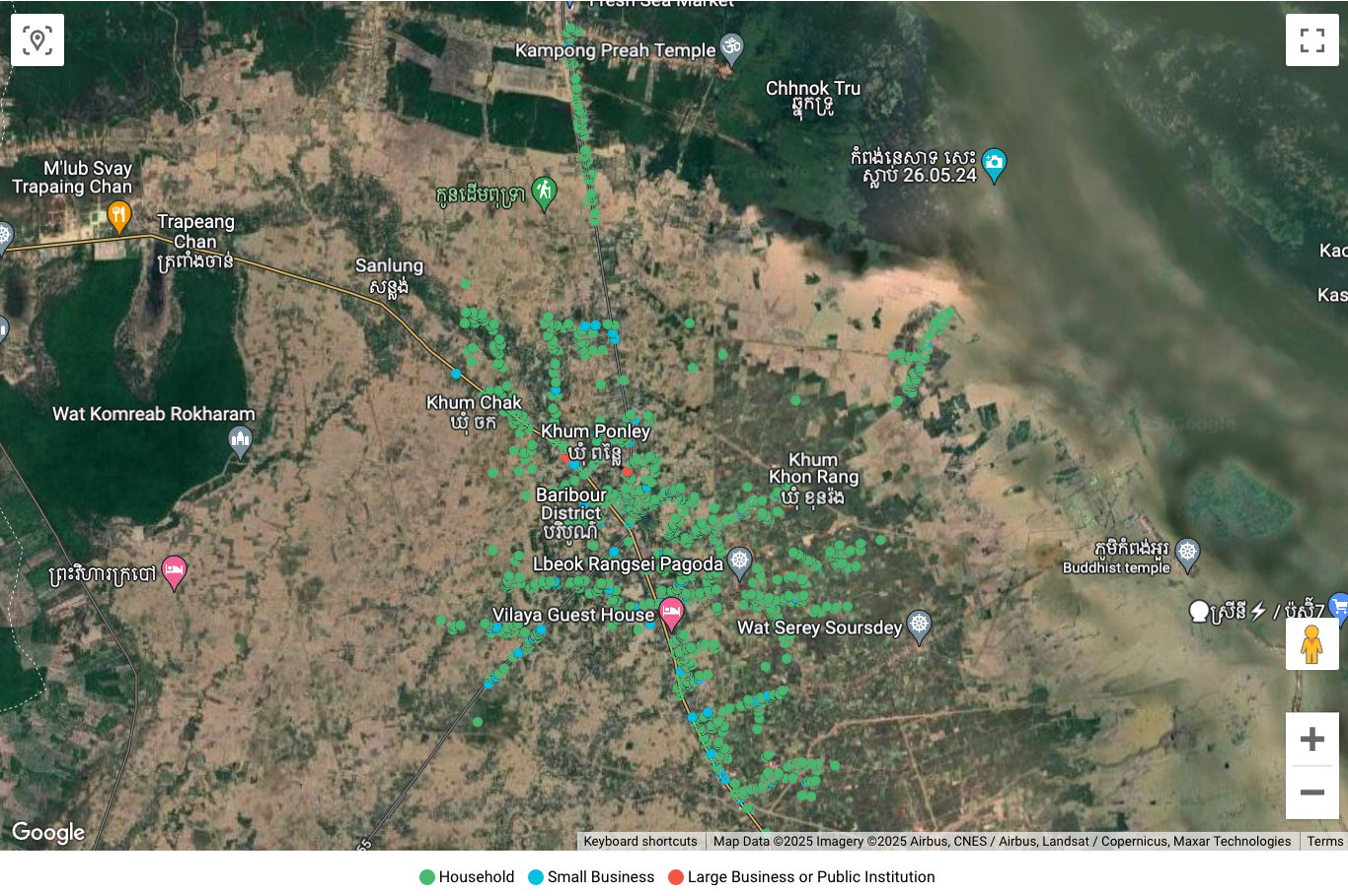
From September 2024 to January 2025, the number of onboarded customers grew from 378 to 1,780, representing an increase of over 370% in just four months. The sales team have a 71% sales closing rate, meaning 7 out of every 10 households and small businesses have subscribed to and paid a deposit for weekly waste collection service.
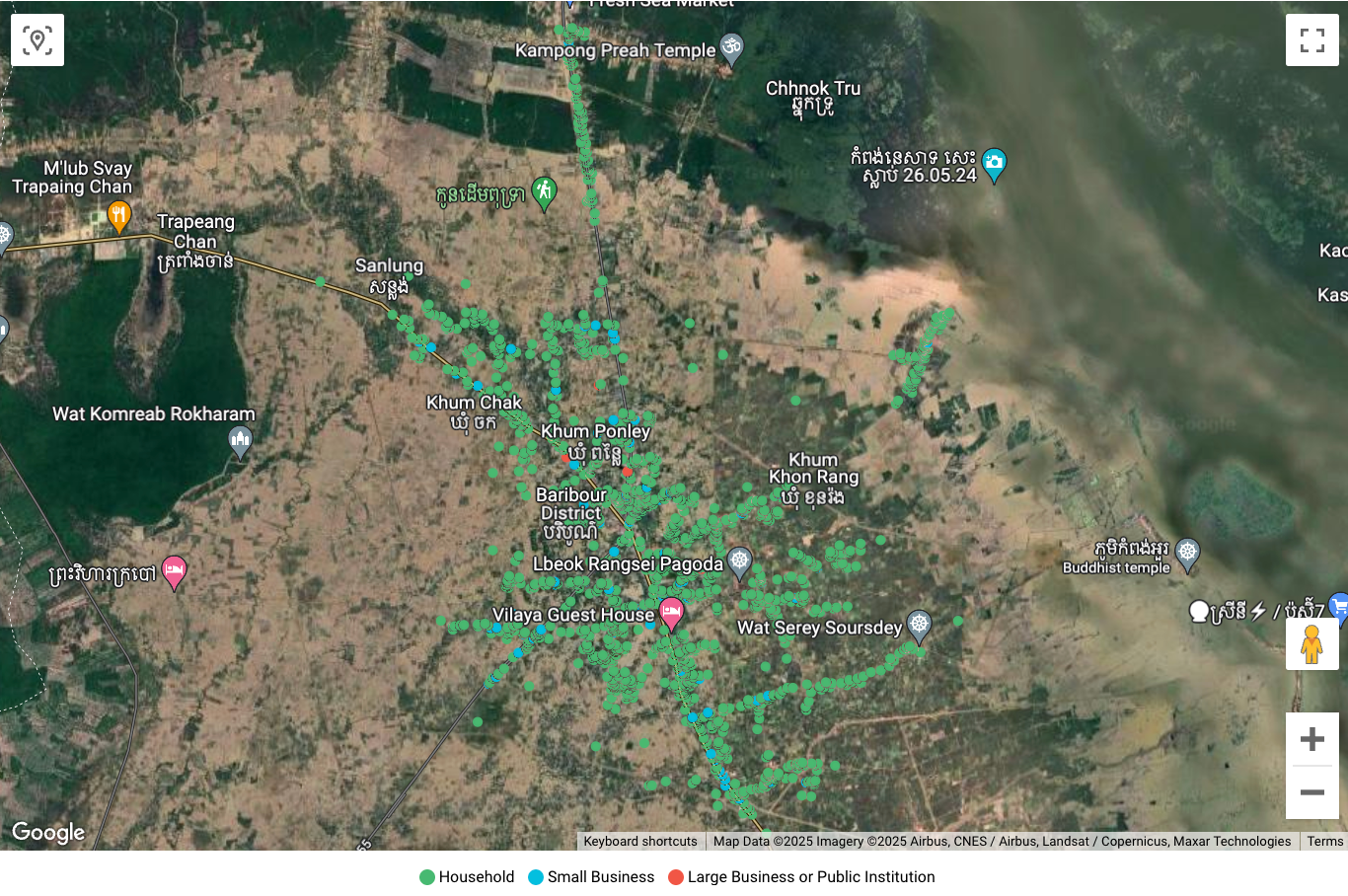
The next phase of the waste collection service focuses on business capacity building, community engagement, and sustainability. Efforts will strengthen the livelihoods, safety, and dignity of informal waste collectors through gender-focused business training, ensuring greater economic stability. To further engage communities, the initiative will support clean-up events in collaboration with the Ministry of Environment, encouraging responsible waste disposal. Additionally, schools will serve as plastic collection hubs, providing a safe and structured way for students and residents to participate in waste management. These steps will enhance efficiency, environmental impact, and long-term sustainability, while creating more opportunities for those working in the waste sector.
As we continue this upward trajectory, the focus remains on expanding access, refining operations, and ensuring long-term sustainability for waste management in the region!
